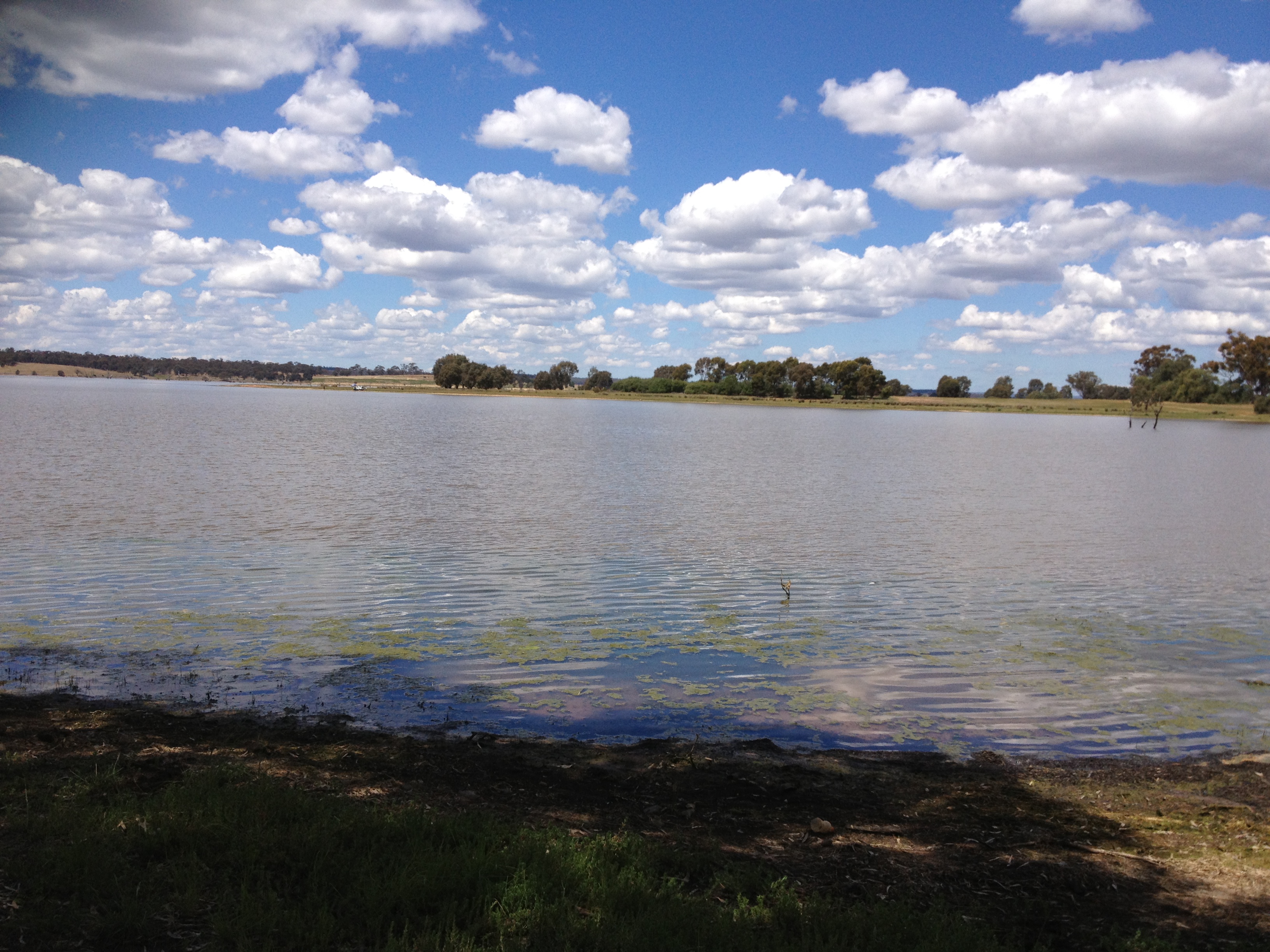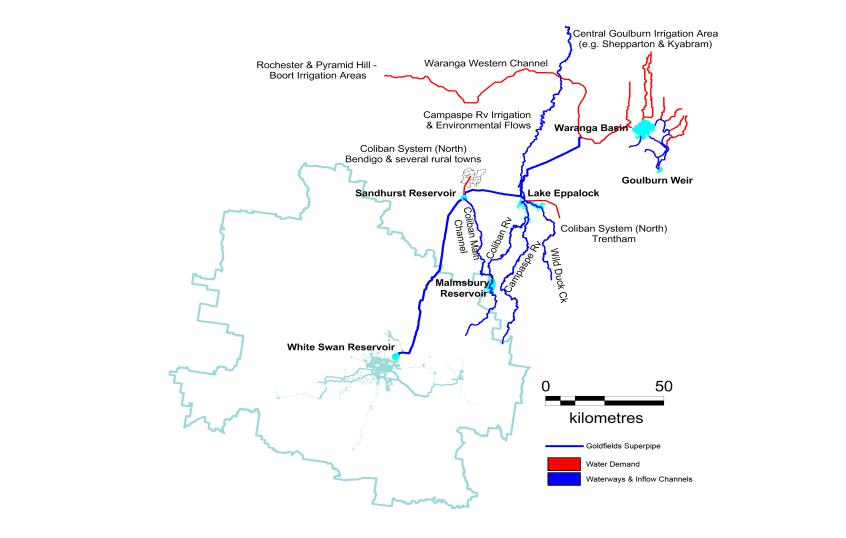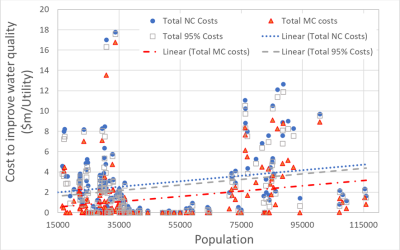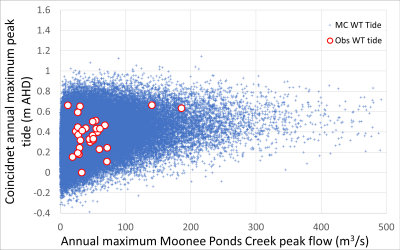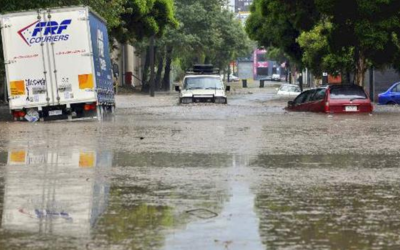Systems analysis reveals challenges of climate change on linked towns and irrigation districts connected to Murray Darling Basin
Presentation by Dr Peter Coombes and Dr Michael Barry at the Climate Adaption 2018 on Thursday 10 May in Room P3, 13:30 15:00, at Crown Promenade South Bank Melbourne.
This paper presents systems analysis of climate change and population growth scenarios, and management options for the Ballarat region of Victoria which is dependent on groundwater and bulk water allocations from the Moorabool, Campaspe, Goulburn, Loddon and Yarrowee River catchments, and includes towns and irrigation districts. Detailed local inputs, such as demographics, land uses and human behaviour, and linked water supply, sewage, stormwater, economic and environmental considerations, were utilised to build systems analysis based on local scale behavioural inputs (bottom up) rather than traditional analysis of water resources based on regional scale assumptions and averages. This approach was able to reproduce historical water cycle behaviours and revealed the economic trade-offs created by climate change, high population growth and management options.

